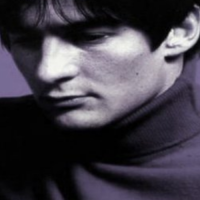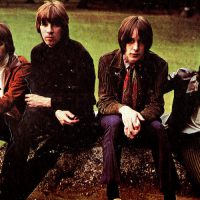The early ’70s may not have been a very good time for the country America – witness the Vietnam War and Watergate – but it was a very good time for the musical act America. In 1972, the group penetrated the charts with “A Horse With No Name” and “I Need You,” while “Ventura Highway” and “Don’t Cross the River” snagged the airwaves the following year.
Composed of vocalists, songwriters and multi-instrumentalists Dewey Bunnell, Dan Peek and Gerry Buckley, the trio were American but they actually came together in London, England where their military-employed parents were stationed. Shortly after America’s breakthrough, the band relocated to Los Angeles.
Brandishing a strain of folk pop that collected comparisions to gentler versions of Buffalo Springfield and Crosby Stills Nash and Young, America also possessed an affinity for certain aspects of the Beach Boys and the Beatles. Yet nostalgic trappings were avoided, as the group’s finely crafted material presented a modern twist and sheen. Far more diversified than critics gave them credit for, the band’s first three albums – America, Homecoming and Hat Trick – even contained sojourns into progressive rock.
Spring 1974 saw America return to London to work on their fourth album, Holiday (Warner Bros. Records). Renowned Beatles producer George Martin was hired to utilize his wizardry, and as expected the results were impressive. Not only was the album a commercial accomplishment, but an artistic achievement as well.
Released at the end of June, Holiday parented two hit singles, both of which cracked the Top 5. Charged with America’s signature sweet and stellar harmonies, the breezy “Tin Man” swirls around and around to a jazzy tenor, and the acoustic-based “Lonely People” is spiked with a run of bluesy harmonica notes and bobbing rhythms.
The remainder of Holiday juggles America’s sun-soaked West Coast folk-rock roots with liberal servings of British pop patterns. A strong Beatles mentality is not surprisingly embedded in the tunes, along with a tip of the cap to the likes of the Kinks and the Hollies. But as previously mentioned, America had the tools and vision to update their influences and install fresh perspectives into the sessions. And, of course, it was a bonus to have the perennially industrious Sir George Martin manning the dials.
Salted with elegant orchestral arrangements, Holiday glistens with gloss and polish without the usual pretentiousness attached when such an approach is attempted by rock groups. The mood is rather lighthearted, and America’s melody-minted singing and crisp and clear playing convey an organic feel.
Fueled by twinkling piano passages, “Mad Dog” reins in as a giddy dance hall music piece, and “Old Man Took” stands as an appealing blend of jazz and soul. America’s characteristic folk pop procedures emerge on the catchy “Baby It’s Up to You” and “Another Try” occupies the rocking side of the corridor.
Infusing soft-pop sounds with folk rock guitars and symphonic accessories, Holiday accented America’s grip on varying styles in fashionable form. The band continued to create songs that were rewarding and successful, and are now regarded as the A-list tunesmiths and musicians they always were.
- Why Aerosmith Finally Broke Through With ‘Get Your Wings’ - March 5, 2024
- How ‘The Birds, the Bees and the Monkees’ Blew Away Their Pre-Fab Image - April 10, 2023
- Steve Howe Made a Colorful, Quite Surprising Debut With Tomorrow - February 20, 2023




